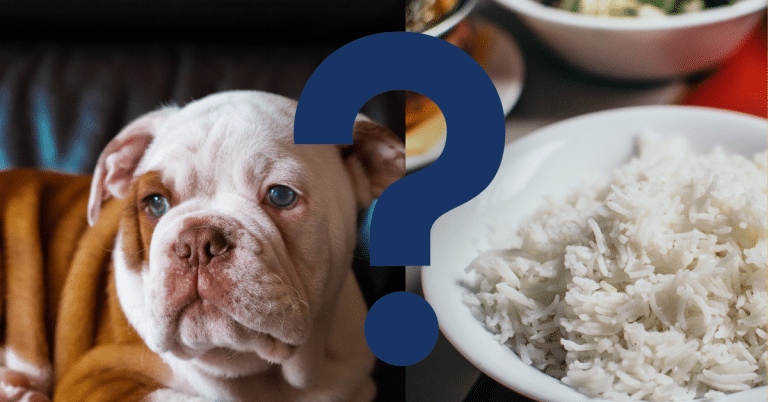Can Dogs Eat Pomegranates? A Vet’s Opinion

Pomegranate is a rich source of antioxidants, but can you feed Pomegranate to your dog?
Yes, dogs can eat Pomegranates, but it’s high fiber content and giant seeds, the fruit can be challenging for dogs to digest and induce gastrointestinal distress.
Benefits Of Pomegranate For Dogs
Although some anecdotal reports suggest that pomegranates may enhance dogs’ health, there is no scientific proof to support these assertions. The following are some of the Pomegranates for dogs purported advantages:
- Pomegranate is a vital source of antioxidants, which can help shield cells from harm caused by free radicals, boosting the immune system. No data support the notion that doing this may strengthen a dog’s immune system.
- Pomegranate includes fiber, which is crucial for keeping a healthy digestive system. However, pomegranates also contain tannins, which, in difficult situations, can irritate the stomach and result in renal failure. Thus, it is not advised to offer Pomegranate to dogs to aid with digestion.
- Pomegranate has been demonstrated to have anti-inflammatory qualities in humans. However, there is currently no data to support this in canines. Working with a veterinarian will help you determine the underlying cause of the inflammation and create a treatment plan that will be effective. Inflammation may be a sign of many different medical disorders.
Generally, even though pomegranates are healthy fruit for people, giving them to dogs is not usually advised because of the possibility of digestive problems and kidney failure brought on by tannins. To protect your dog’s safety and health, it is always preferable to consult a veterinarian before introducing any new foods to their diet.
Further details concerning the potential danger that pomegranates may cause to dogs are provided below:
- Digestive disturbance: Pomegranate contains high quantities of tannins, which can cause digestive distress in dogs. An example of a polyphenol is tannins, which may bind to digestive system proteins and enzymes and result in discomfort and inflammation. Vomiting, diarrhea, and stomach discomfort are all possible signs of digestive trouble. Dogs who experience extreme dehydration may need medical attention.
- Pomegranate seeds can be a choking hazard for dogs, significantly smaller breeds because they are rather big and complex. If a dog ingests a seed whole, it may become stuck in its throat or esophagus and must be removed immediately.
- An intestinal obstruction, which is a dangerous and potentially fatal illness, can occur in dogs that consume a significant amount of pomegranate seeds or pulp. An obstruction in the dog’s digestive tract, known as an intestinal blockage, prevents food and liquids from flowing through. Vomiting, diarrhea, stomach discomfort, and fatigue may indicate intestinal obstruction. Intestinal obstruction can result in tissue damage, infection, and organ failure if left untreated.
- Dogs that ingest significant amounts of Pomegranate or already have renal problems may be at risk for kidney failure due to the fruit’s tannins. The tannins might harm the kidneys’ capacity to filter waste from the blood, which also interferes with this process. Lethargy, vomiting, increased thirst and urination, reduced appetite, and renal failure are all possible symptoms. Getting your dog to the doctor immediately is critical if you think it may be experiencing renal failure.
- Pomegranate allergies in certain dogs can result in symptoms including scratchy skin, rashes, and breathing difficulties. It is advised to avoid offering Pomegranate to your dog if they have a history of allergies or have previously experienced an allergic response to it.

How To Safely Give Pomegranates To Dogs?
Although giving pomegranates to dogs is generally not advised because of the risk of digestive upset, choking risks, and kidney damage, if you do decide to do so, follow these safety tips:
- Start with a little: If you wish to add Pomegranate to your dog’s food, introduce it gradually and observe how they respond. Keep an eye out for any indications of digestive disturbance in your dog, such as vomiting or diarrhea.
- When giving your dog pomegranates, removing the seeds and peeling them is advisable since they might cause choking in dogs. To simplify your dog’s digestion, you may also remove the peel.
- Cut the Pomegranate into bite-sized pieces to make it simpler for your dog to consume and lower the chance that they will choke.
- Pomegranate should only be fed to dogs in moderation since excessive amounts might harm their kidneys and disturb their digestive systems. Give your dog a modest quantity a few times every week, like one or two tiny pieces.
- Keep an eye out for adverse reaction symptoms: Some dogs may be allergic to Pomegranate, so keep an eye out for any indications of itching, hives, or breathing difficulties. Stop feeding your dog pomegranate and get advice from your veterinarian if they appear.
Remember that speaking with a veterinarian before giving your pet any new food is always preferable.
Will Pomegranate Make A Dog Sick?
High quantities of tannins, which might irritate a dog’s digestive system, are present in pomegranates. Tannins can bind to digestive system proteins, resulting in inflammation and irritability. Dogs who eat a lot of Pomegranate may vomit, have diarrhea, or have gastrointestinal discomfort. Digestive distress can occasionally be severe and call for veterinary care.
Another possible issue is the possibility of choking on the seeds while giving pomegranates to dogs. If stuck there, little and hard pomegranate seeds might clog a dog’s throat or digestive tract. A dangerous illness called intestinal blockage may call for immediate veterinarian attention. Pomegranate allergies in dogs are another possibility. Itching, hives, swelling, and breathing problems are all signs of an allergic response. It’s crucial to cease giving Pomegranate to a dog if it reacts allergically and seeks medical attention.
Last but not least, pomegranate tannins can be sour for dogs’ kidneys, especially if they eat a lot of them or already have renal problems. Severe kidney damage may require long-term veterinarian care to treat.

Vet’s Summary
In conclusion, Pomegranate may have certain advantages for a dog’s health, such as anti-inflammatory and antioxidant characteristics, but there are also some hazards. Pomegranate may upset a dog’s stomach and put them at risk for choking and renal damage. As a result, it’s crucial to get a veterinarian’s advice before introducing any new foods, including Pomegranates, to your dog’s diet.
Probiotics can be a helpful supplement for supporting canine digestive health. Probiotics are living microorganisms supporting the gut’s healthy bacterial balance, enhancing immune system health and digestive performance. According to some research, probiotics can help dogs absorb nutrients better and decrease inflammation.
Probiotics are a more dependable and secure alternative to Pomegranate for supporting general gut health in dogs, even if Pomegranate may have some advantages for the digestive system. If you’re thinking about giving your dog a probiotic supplement, be sure to pick a high-quality product and talk to your vet to be sure it’s suitable for their particular health requirements.
Videos To Watch
Check out this video to answer your question about can dogs eat Pomegranate:
Can your dog digest pomegranate seeds? Well, check out this video without any delay!






